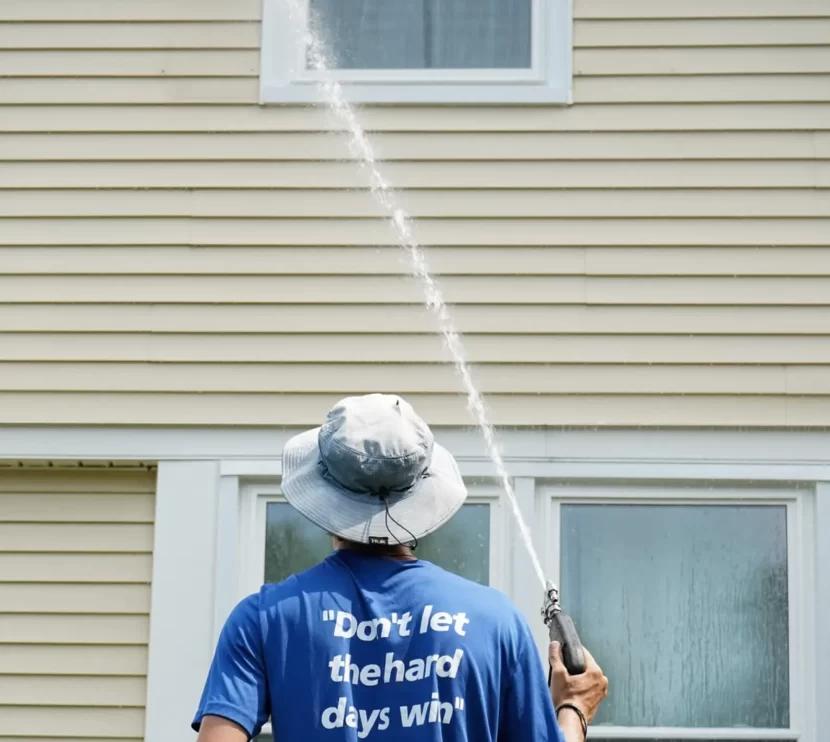Pressure washing is the answer to all your dirt, oil stains and algae problems on many surfaces. From delicate garden furniture to heavy duty applications like concrete surfaces professional pressure washers are the most powerful cleaning solution. But the question is do they supply their own water or use the client’s water source? This guide covers the practices, equipment and considerations for water use in professional pressure washing services.
Standard Practice for Professional Pressure Washers
Professional Pressure Washers
Using the Client’s Water Supply
In most cases professional pressure cleaning service connect to the client’s water tap or garden hose. This is standard for residential jobs where water supply is readily available. Using the client’s water ensures the required flow rate and water pressure is met which is needed for high pressure cleaning tasks.
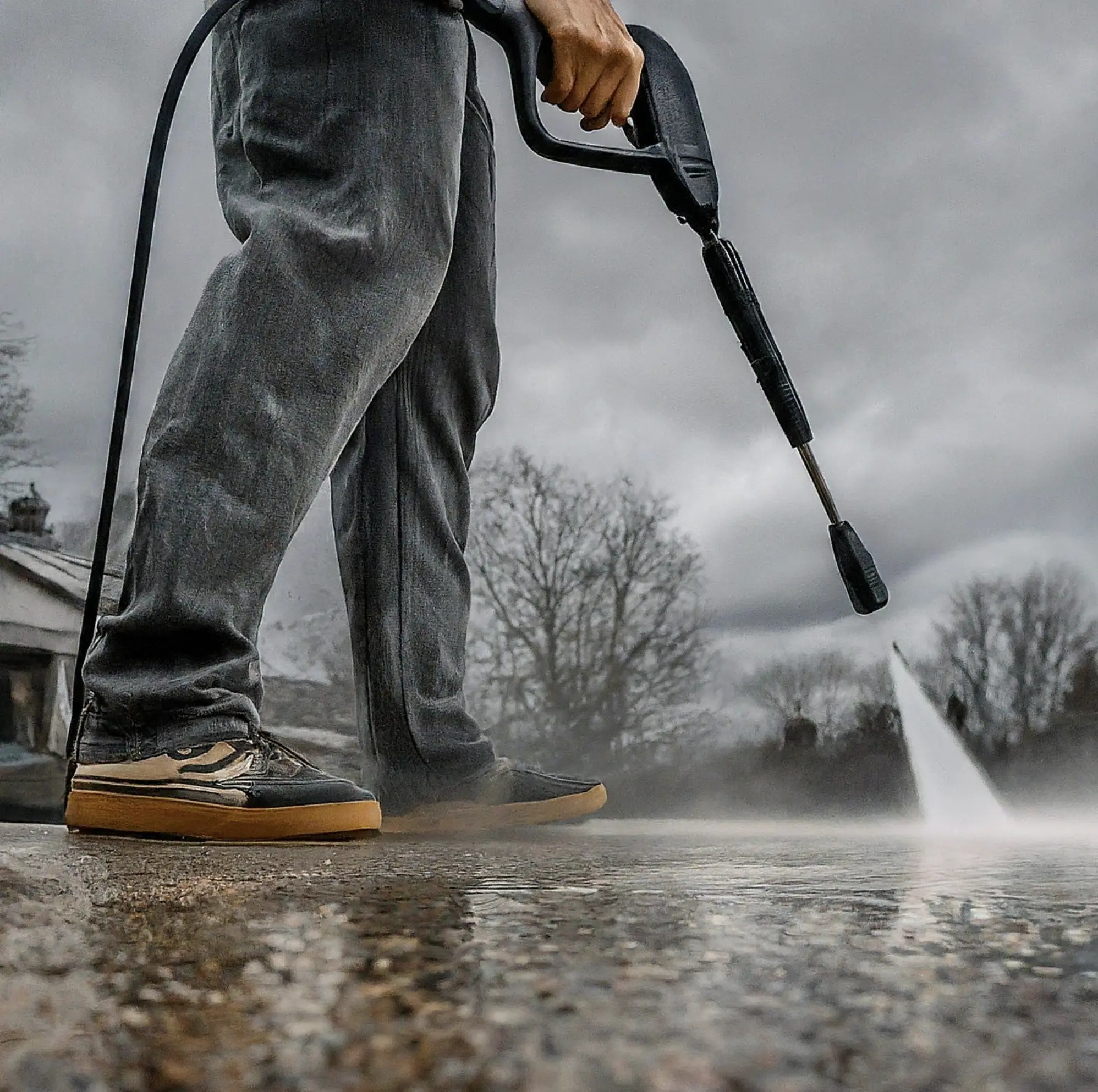
For example:
- A garden tap connected to an average garden hose can provide enough water flow for tasks like washing cars, patios and roofs.
- With the right water supply even stubborn stains on surfaces like driveways and walls can be cleaned efficiently.
Bringing Their Own Water
Professional power washing companies often bring their own water for specialized or remote cleaning jobs. They use tanks filled with gallons of water to clean areas without access to a water tap. This is common for:
- Construction sites
- Outdoor events
- Rural properties with no municipal water connection
They may use portable tanks and suction hoses to deliver water to their high pressure cleaning equipment so they can work uninterrupted.
Advantages of Using the Client’s Water Supply
Cost Savings
Using the client’s water supply means no water has to be transported which reduces the overall cost. Transporting water requires extra equipment and fuel which adds to the customer’s bill.
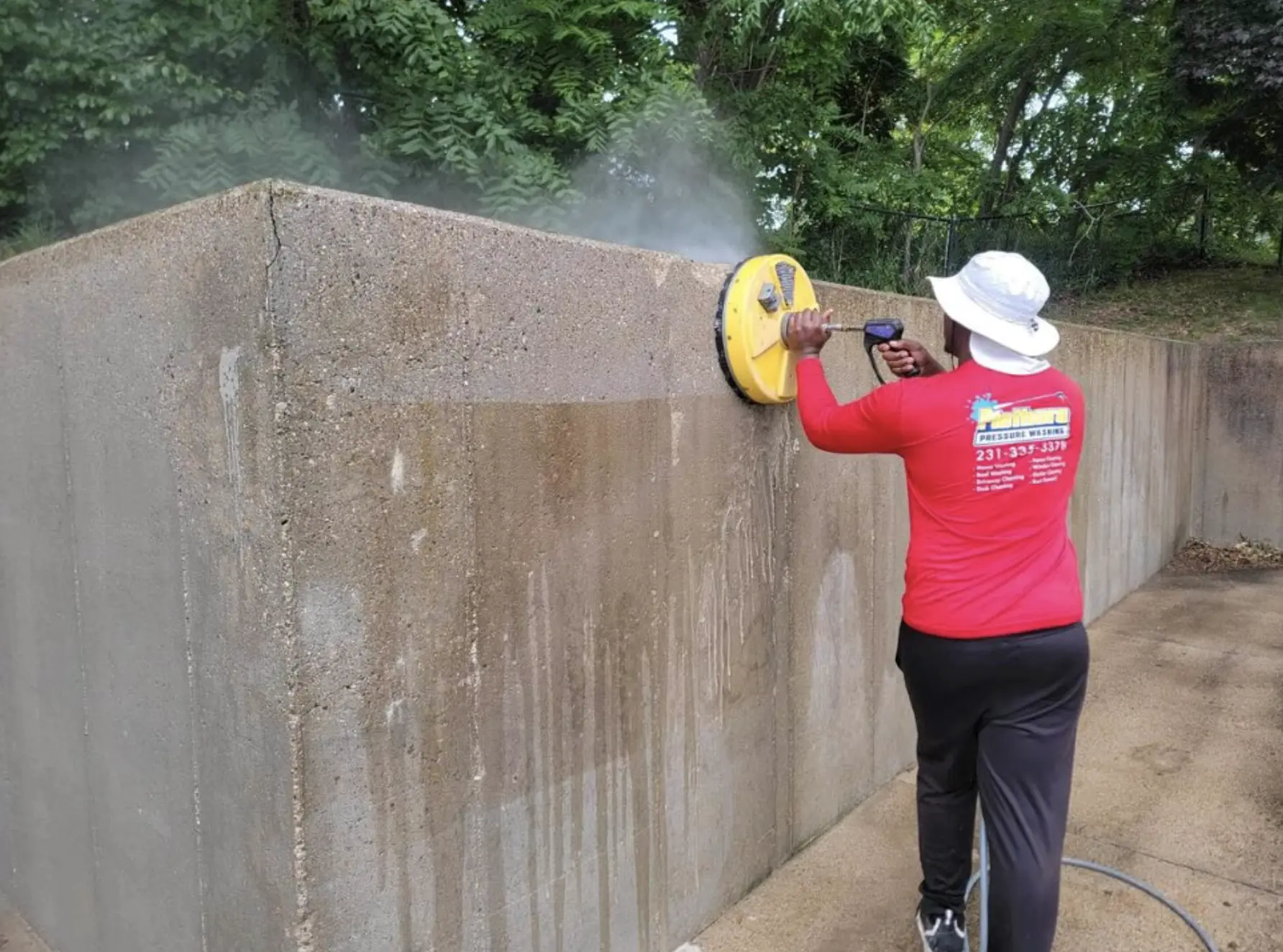
Convenience and Continuous Flow
Property water taps provide a continuous water flow. Most pressure washing machines operate at 2-4 gallons per minute (GPM) so the cleaning process is uninterrupted.
Standard Equipment
Garden taps and hoses on residential properties meet the inlet pressure of most professional pressure washers including commercial grade machines so the cleaning can proceed without interruption or technical problems.
When Do Pros Bring Their Own Water?
Remote Locations
In areas where there are no water spigots or water sources, pros use water tanks and suction hoses. These tanks are mounted on trucks and can hold hundreds of gallons, perfect for cleaning big spaces like:
- Industrial warehouses
- Outdoor parking lots
- Remote farm buildings
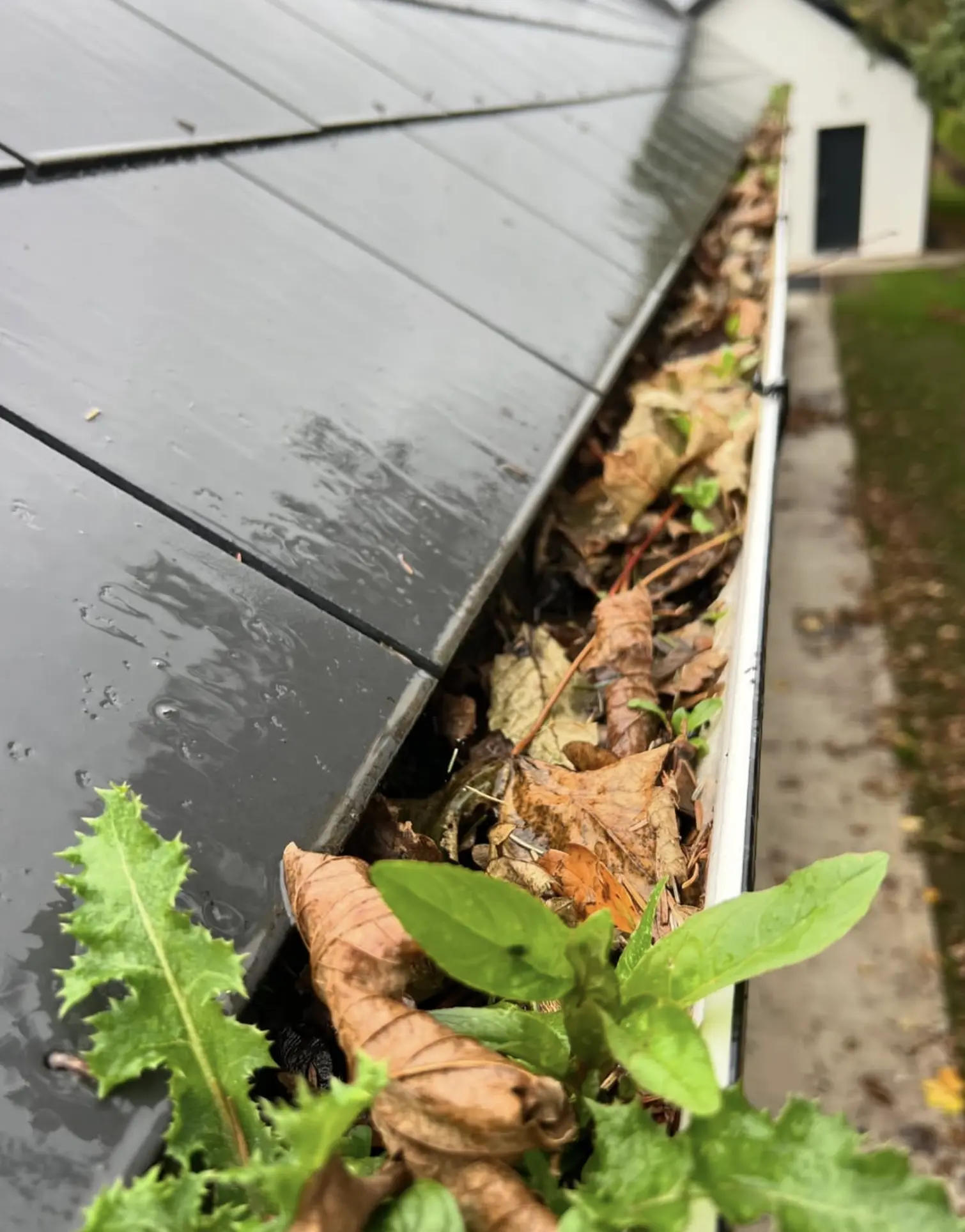
High Temperature Cleaning
For hot water pressure washing jobs, pros may bring heated water in specialized tanks. Hot water pressure washers are used for oil stains, algae on concrete, or grease on machinery.
Portable and On-the-Go
Larger commercial pressure washers have built-in water tanks that can supply high pressure water for hours. These are used for:
- Municipal cleaning projects
- Graffiti removal
- Cleaning during public events
Extra Cost for Self Supplied Water
When pros bring their own water, it extends the life of their equipment due to the wear and tear of hauling heavy tanks. These extra costs are factored into the service price.
What Pros Use for Pressure Washing
1. Pumps
- Triplex Pumps: High end pumps for daily, heavy use. They provide a steady stream of water for cleaning jobs.
- Axial Pumps: Entry level pumps for smaller or lighter cleaning jobs.
2. Nozzles
- Rotary Nozzle: Powerful cleaning by shooting water in a rotating pattern.
- Adjustable Fan Nozzle: Gentle cleaning on delicate surfaces.
- Flat Jet Nozzle: For cleaning big flat surfaces like driveways and patios.
3. Accessories
- Surface Cleaners: Attachments for cleaning big flat surfaces fast.
- Hoses and Extensions: Long hoses, over 10 meters, for flexibility.
- Foldable Buckets and Water Butts: Portable water storage for remote jobs.
4. Motor Options
- Electric Motors: Found in residential pressure washers for quiet operation.
- 4-Pole Motors: In high powered commercial models for maximum cleaning power.
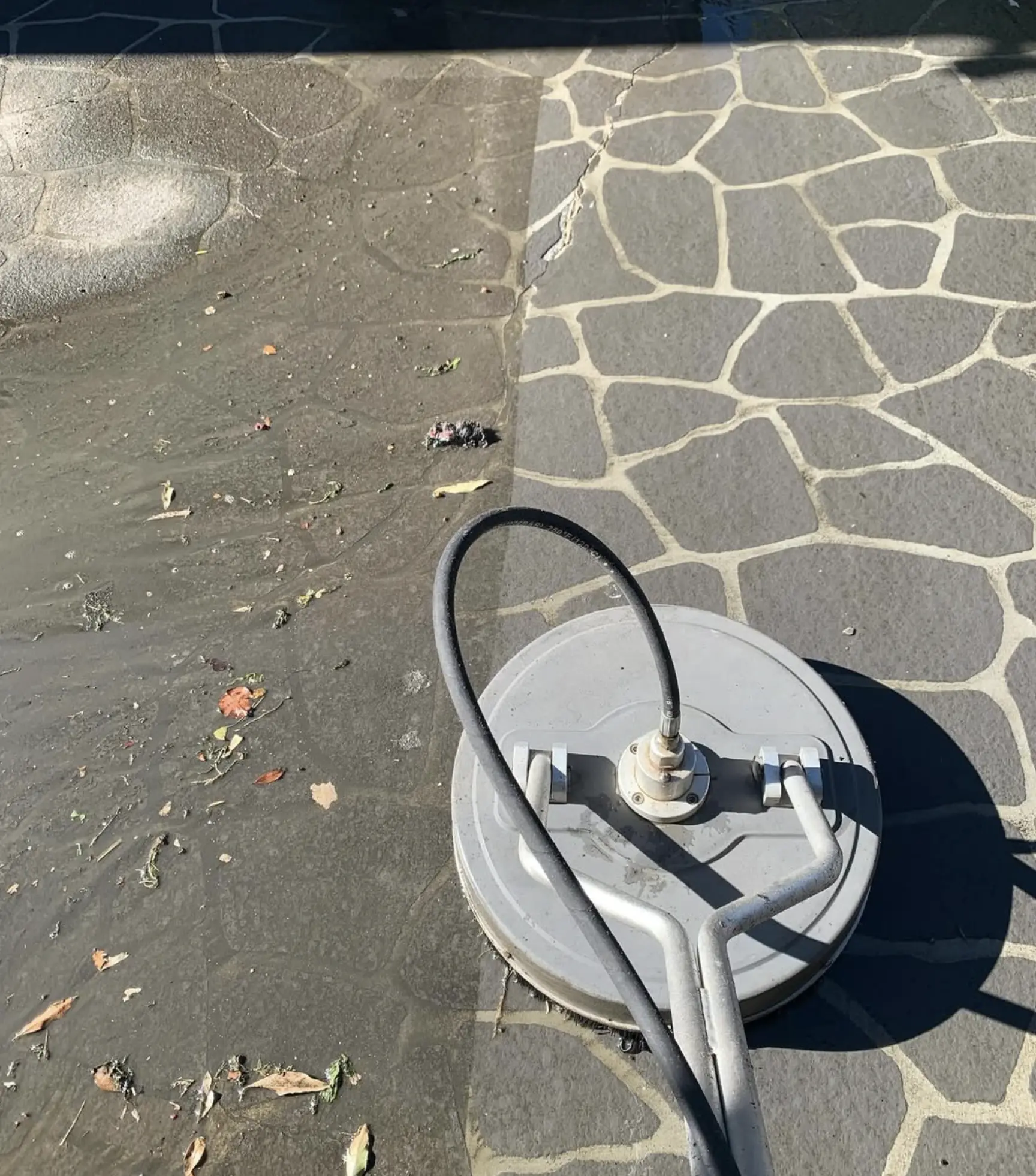
Water Usage Factors
1. Type of Job
The job determines the water usage:
- Gentle Cleaning: Low water pressure for jobs like washing garden furniture or soft wash roof cleaning.
- Heavy Duty: Requires high pressure water jets and higher water flow for jobs like auto cleaning or concrete cleaning.
2. Water Availability
If the site has limited water access like remote construction sites or urban areas with water restrictions, pros may need alternative solutions like portable tanks or water recycling systems.
3. Equipment Requirements
High pressure cleaners and commercial pressure washers have specific water inlet pressure requirements to work efficiently.
4. Environmental Impact
Many pros now use water recycling and filtration systems to reduce waste. For example:
- Water filter systems protect equipment from debris in untreated water sources.
- Water-efficient models optimize the use of gallons of water, reducing overall consumption.
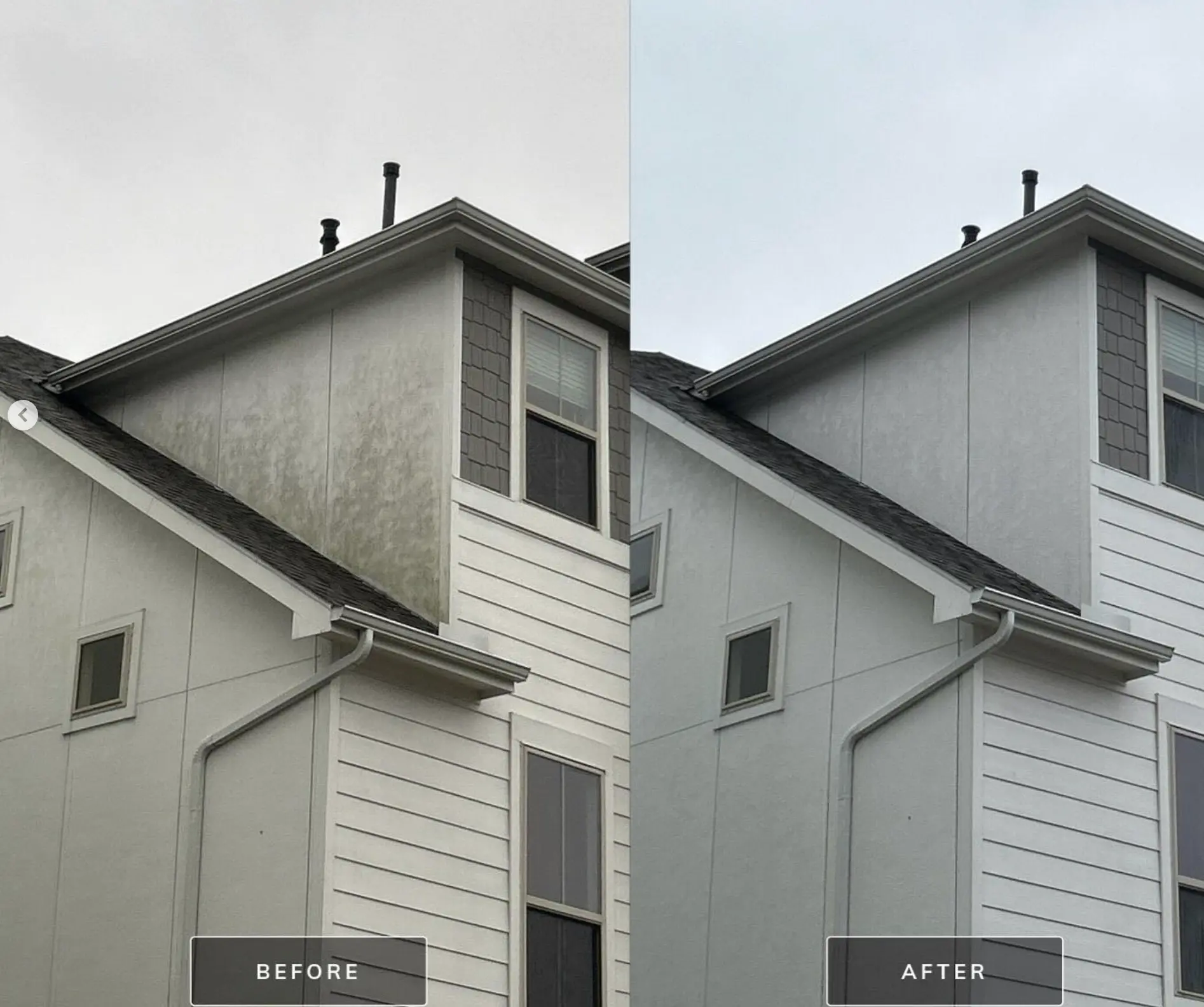
The Benefits of Professional Pressure Washing
1. Speed
Rotary nozzles and hot water machines mean pros can clean faster than you can with your own equipment.
2. Versatility
Pros can clean everything from delicate patio furniture to concrete stains.
3. Access to tools
All the pressure washers and accessories – flat jet nozzles, spray patterns, suction hoses – for the job.
Whether professional pressure washers use their own water depends on the job, location and equipment. For residential jobs, the client’s water supply is used, for convenience and cost savings. For industrial or remote jobs, pros have portable water tanks and specialized tools. Knowing this will help you prepare for your job and get the best results.
FAQs
Do professional pressure washers use cold water or hot water?
Both. Cold water for basic jobs, hot water for grease and oil.
What’s the typical flow rate for a pro pressure washer?
2-4 GPM for most pros, up to 10 GPM for industrial use.
Can pressure washers use water from a pool?
Yes, with a suction hose and water filter, pros can use pool water or water butts.
How often should I hire a pro pressure wash?
For driveways and patios, once or twice a year.
Are professional pressure washers environmentally friendly?
Many companies use water recycling systems and eco-friendly cleaning solutions to minimize environmental impact.
